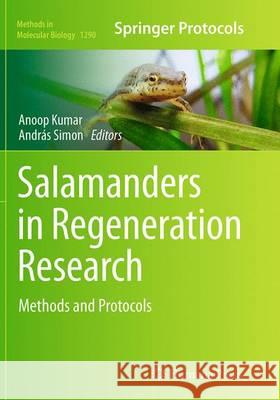Salamanders in Regeneration Research: Methods and Protocols » książka
topmenu
Salamanders in Regeneration Research: Methods and Protocols
ISBN-13: 9781493949472 / Angielski / Miękka / 2016 / 357 str.
Kategorie:
Kategorie BISAC:
Wydawca:
Humana Press
Seria wydawnicza:
Język:
Angielski
ISBN-13:
9781493949472
Rok wydania:
2016
Wydanie:
Softcover Repri
Numer serii:
000014950
Ilość stron:
357
Waga:
0.59 kg
Wymiary:
24.89 x 19.56 x 1.27
Oprawa:
Miękka
Wolumenów:
01











